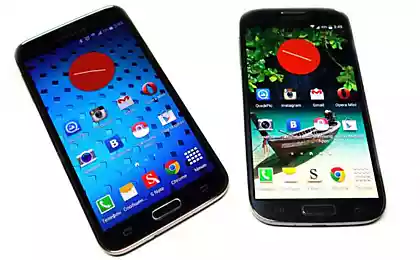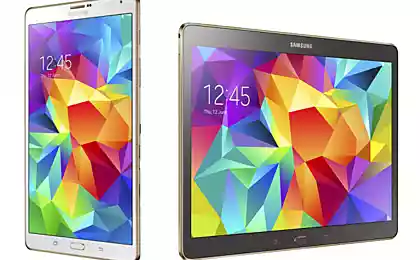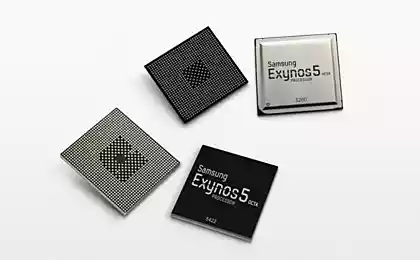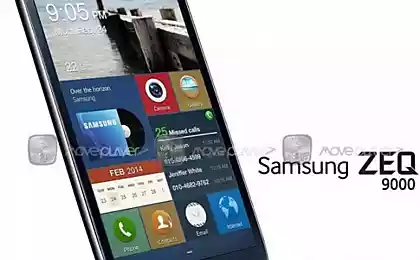742
Samsung also wants to distribute Internet through microsatellites
For quite a large group of companies that one way or another plan to provide access to the Internet for people from remote areas of the planet, now and Samsung. In the scientific article, whose author is the head of the research division of the South Korean company Faruk Khan (Farooq Khan) and which is entitled quite unusual - "Mobile Internet from heaven» ( pdf ) - describes the concept of the 4600 fleet of microsatellites, which will be located in low Earth orbit and provides a stream of data in 1 zetabayt month. This capacity should be sufficient 5 billion people around the world, each of which can use 200 GB of bandwidth per month.
Technically, the idea seems Samsung is not new. Under microsatellites Khan understands spacecraft weighing less than 500 kg, which will be located at an altitude of up to 2,000 km. Subscriber units for receiving satellite signals should not be used directly instead of on the Earth's surface assumes a CS network such as that of existing mobile operators. It is up to them phones and tablets and will receive the converted satellite signal. On the basis of 5G-communications and the next generation of Wi-Fi in Samsung want to develop some common universal wireless technology to access the Internet, which will be used by the user devices. Technical parameters of cell sites, the number and value of their buildings are not called. Also assumes a control center, which will deal with the control of micro-operation.
While competitors Samsung's similar to the idea of Internet access are located in front of the South Korean company. SpaceX Elon Musk at least a spacecraft that can deliver the required micro-satellites into orbit. The British company OneWeb, which poses a problem similar to Samsung, has already conclude contracts for the launch of carrier rockets. However, they have a fleet of satellites is much less than that which is planning to Samsung - just 672 satellite. Google also jointly with NASA plans similar launches; In addition at the search giant in the arsenal there is also a Project Loon, Internet distribution which will be made by means of balloons.
Source: geektimes.ru/post/260230/
Technically, the idea seems Samsung is not new. Under microsatellites Khan understands spacecraft weighing less than 500 kg, which will be located at an altitude of up to 2,000 km. Subscriber units for receiving satellite signals should not be used directly instead of on the Earth's surface assumes a CS network such as that of existing mobile operators. It is up to them phones and tablets and will receive the converted satellite signal. On the basis of 5G-communications and the next generation of Wi-Fi in Samsung want to develop some common universal wireless technology to access the Internet, which will be used by the user devices. Technical parameters of cell sites, the number and value of their buildings are not called. Also assumes a control center, which will deal with the control of micro-operation.
While competitors Samsung's similar to the idea of Internet access are located in front of the South Korean company. SpaceX Elon Musk at least a spacecraft that can deliver the required micro-satellites into orbit. The British company OneWeb, which poses a problem similar to Samsung, has already conclude contracts for the launch of carrier rockets. However, they have a fleet of satellites is much less than that which is planning to Samsung - just 672 satellite. Google also jointly with NASA plans similar launches; In addition at the search giant in the arsenal there is also a Project Loon, Internet distribution which will be made by means of balloons.
Source: geektimes.ru/post/260230/
Tesla has placed an additional 2 million shares
The gadget, or vehicle? Review elektrosamokata Inmotion L6 and blisks Inmotion V5





















